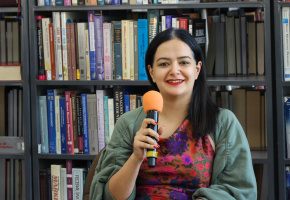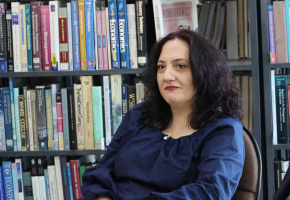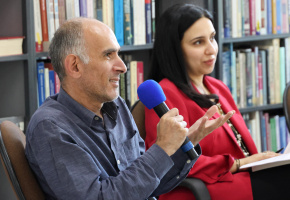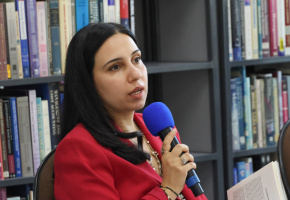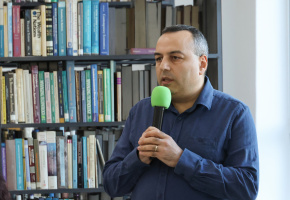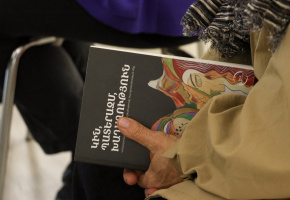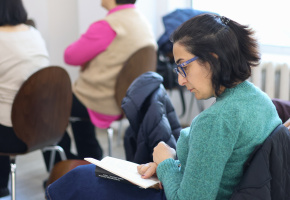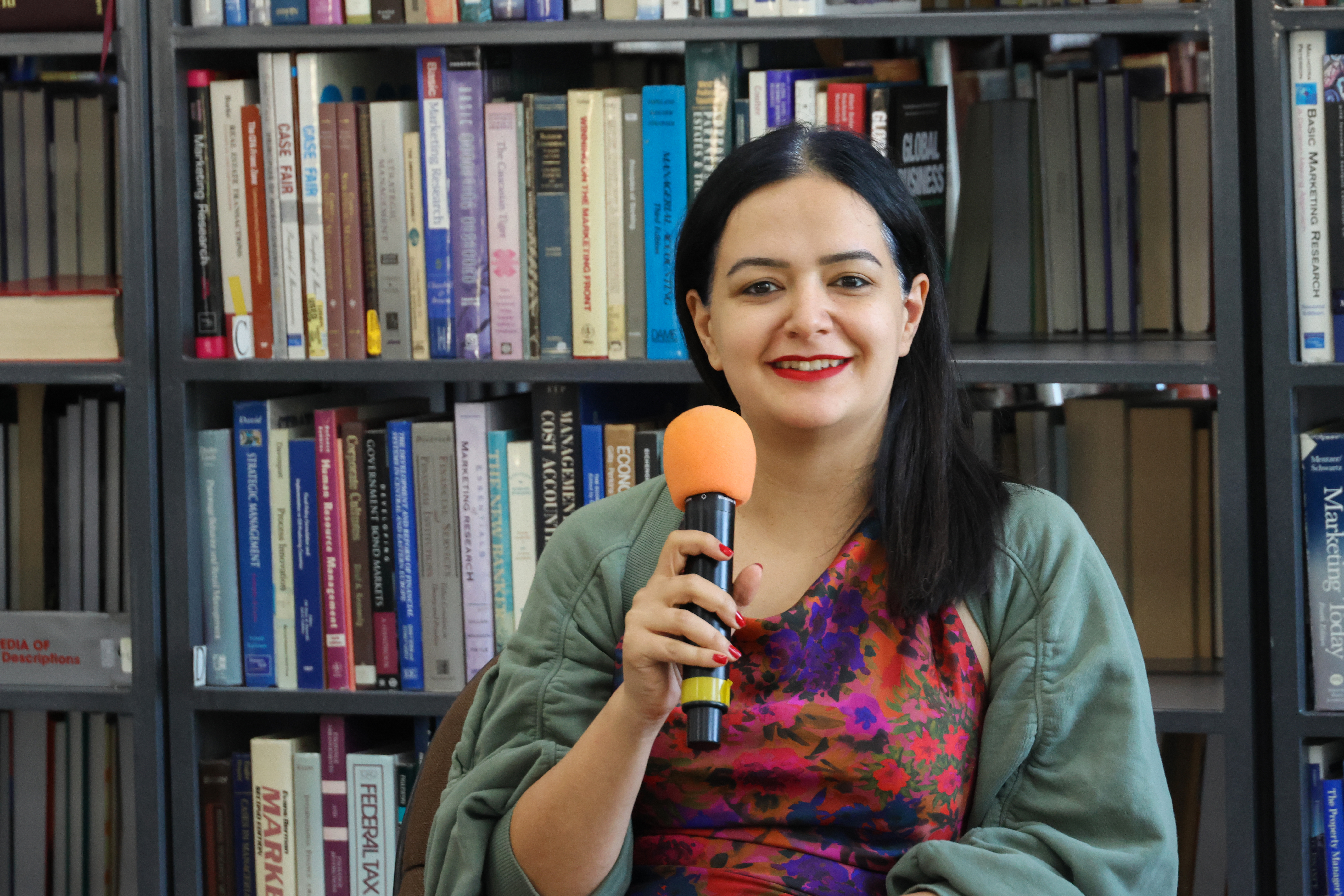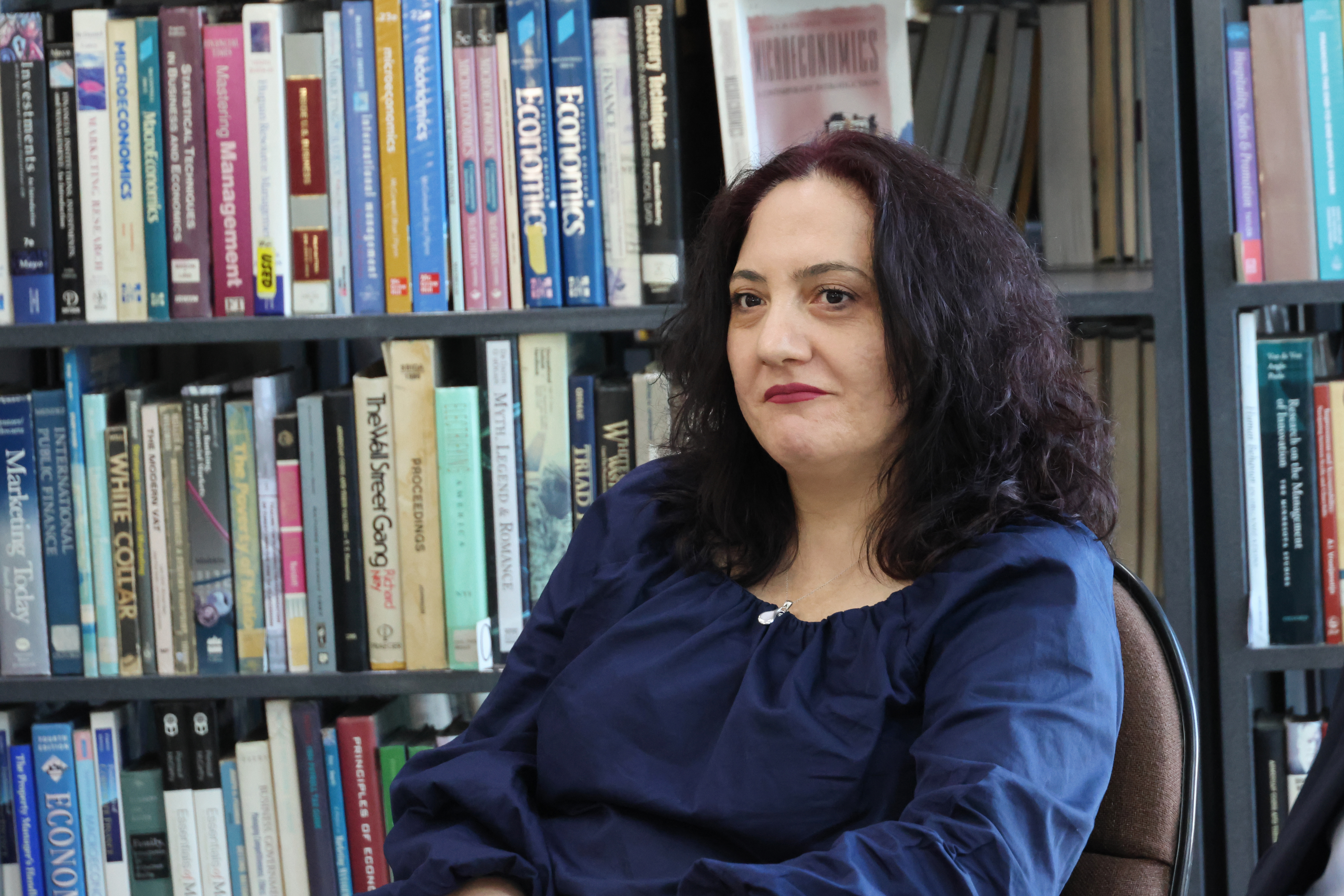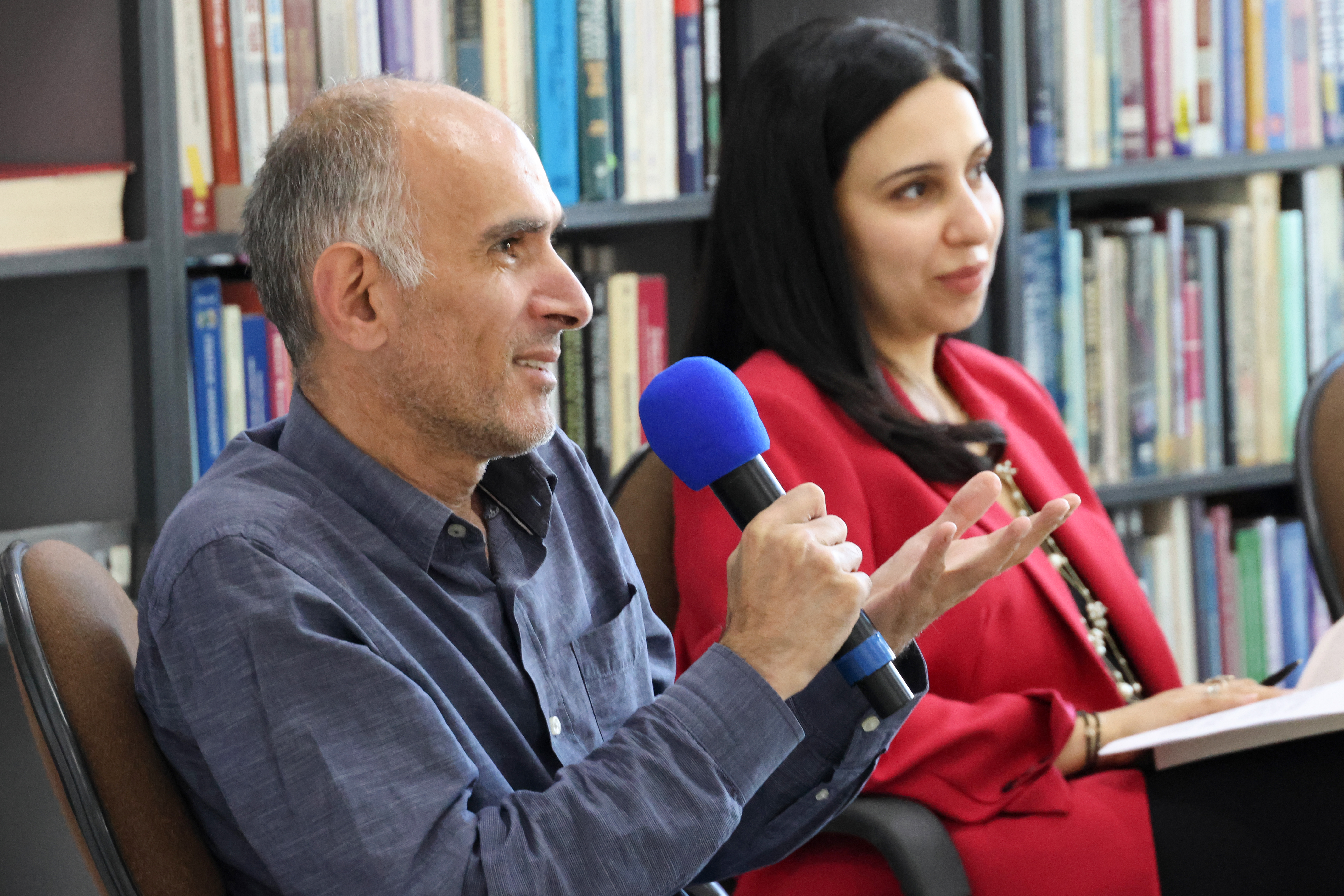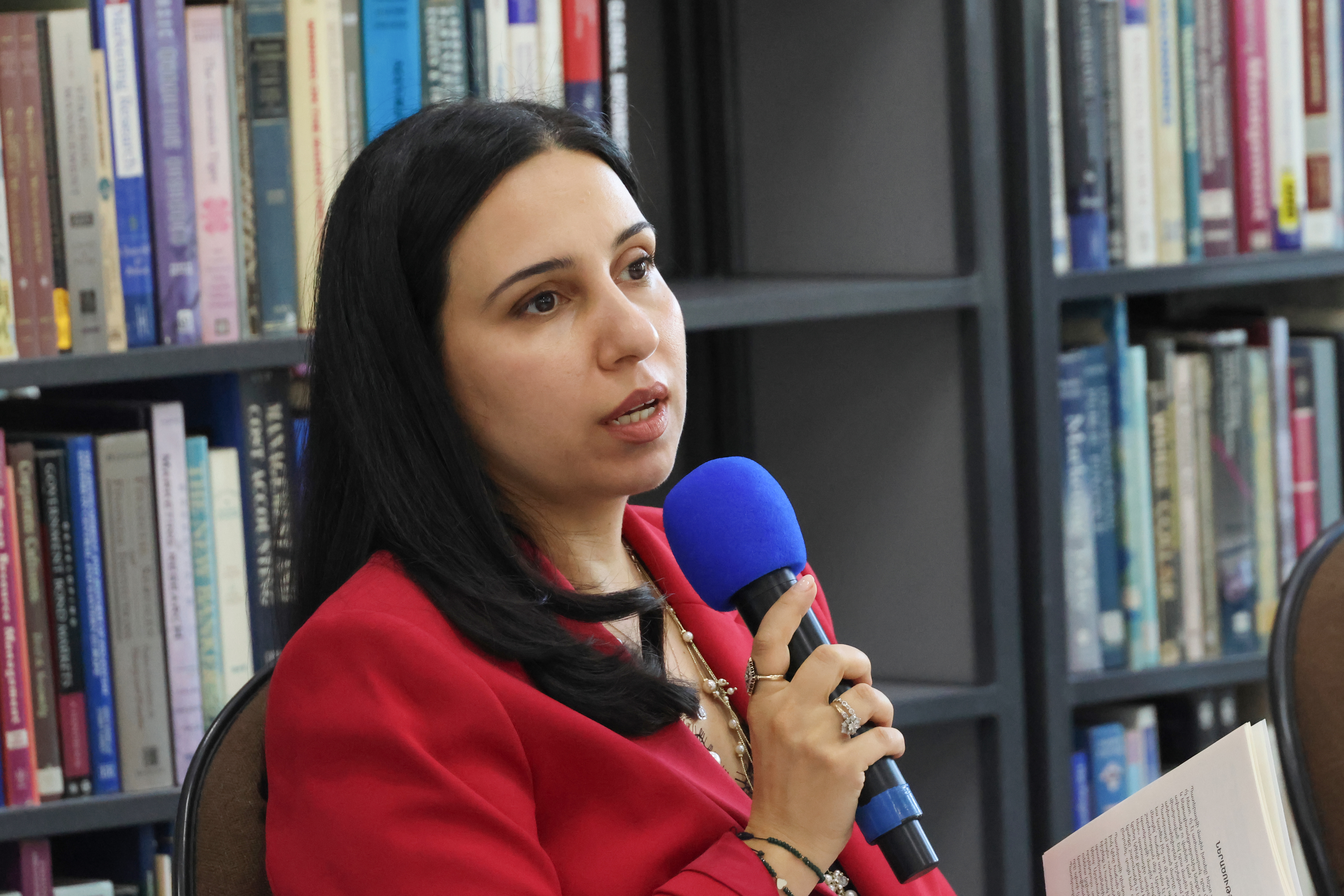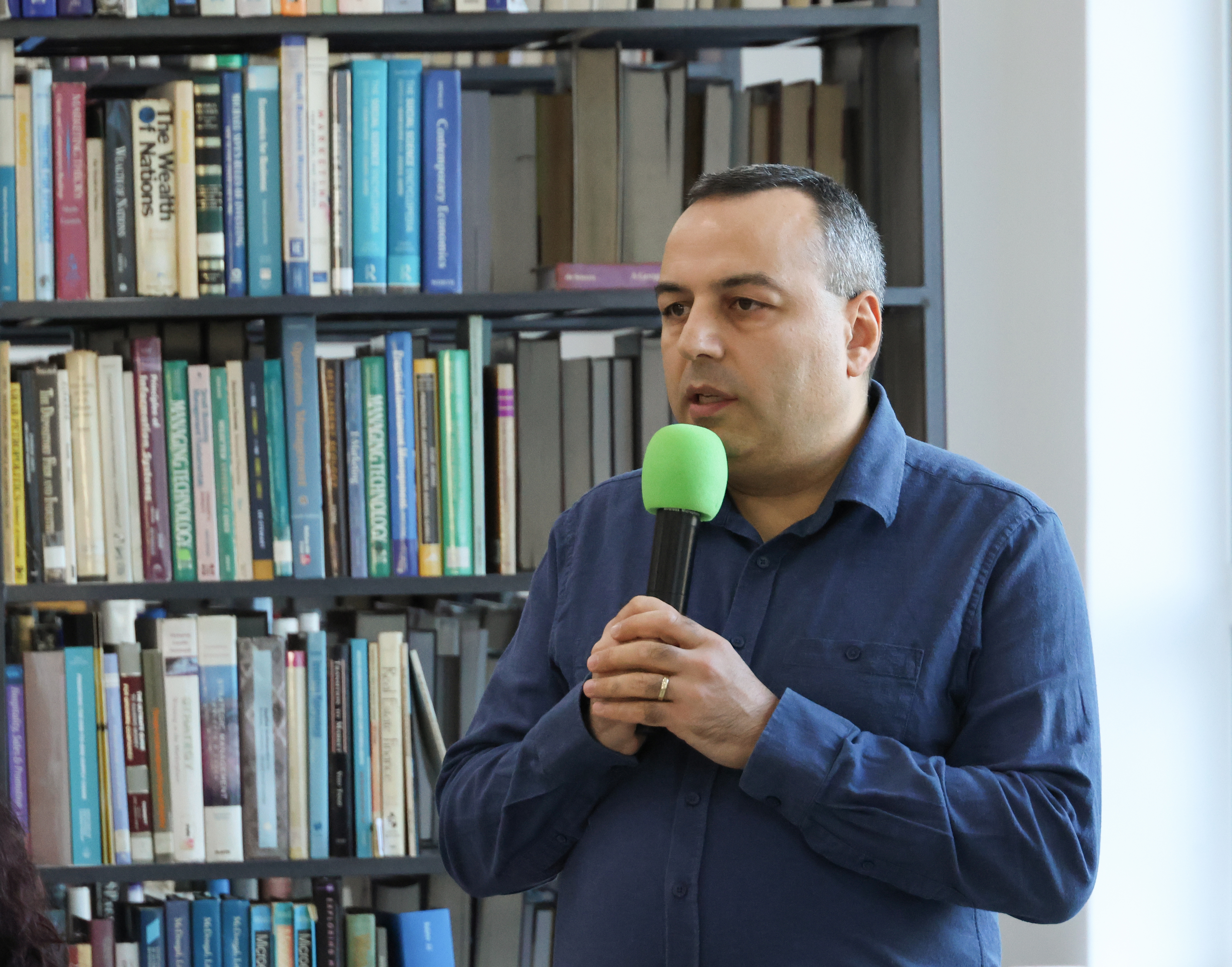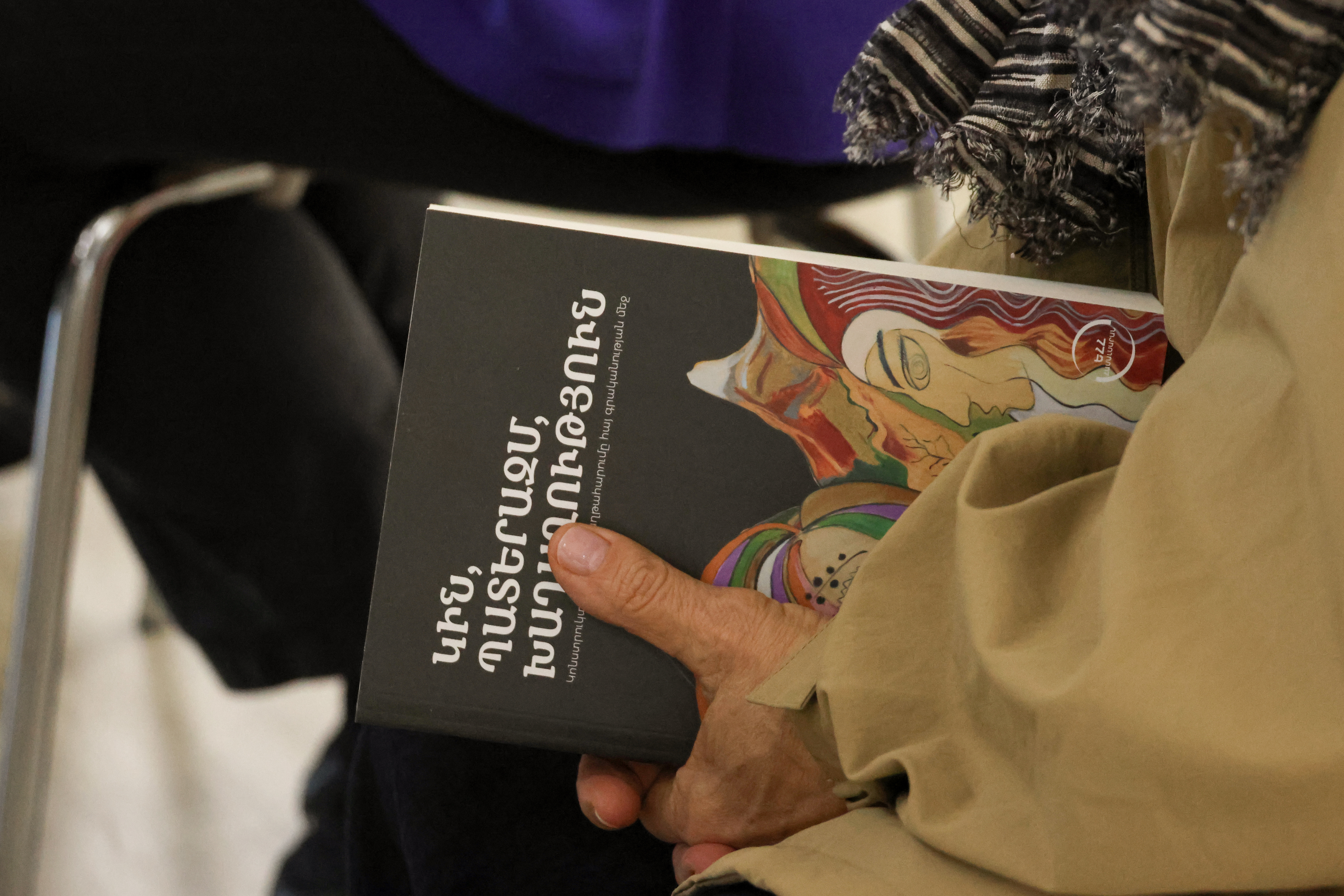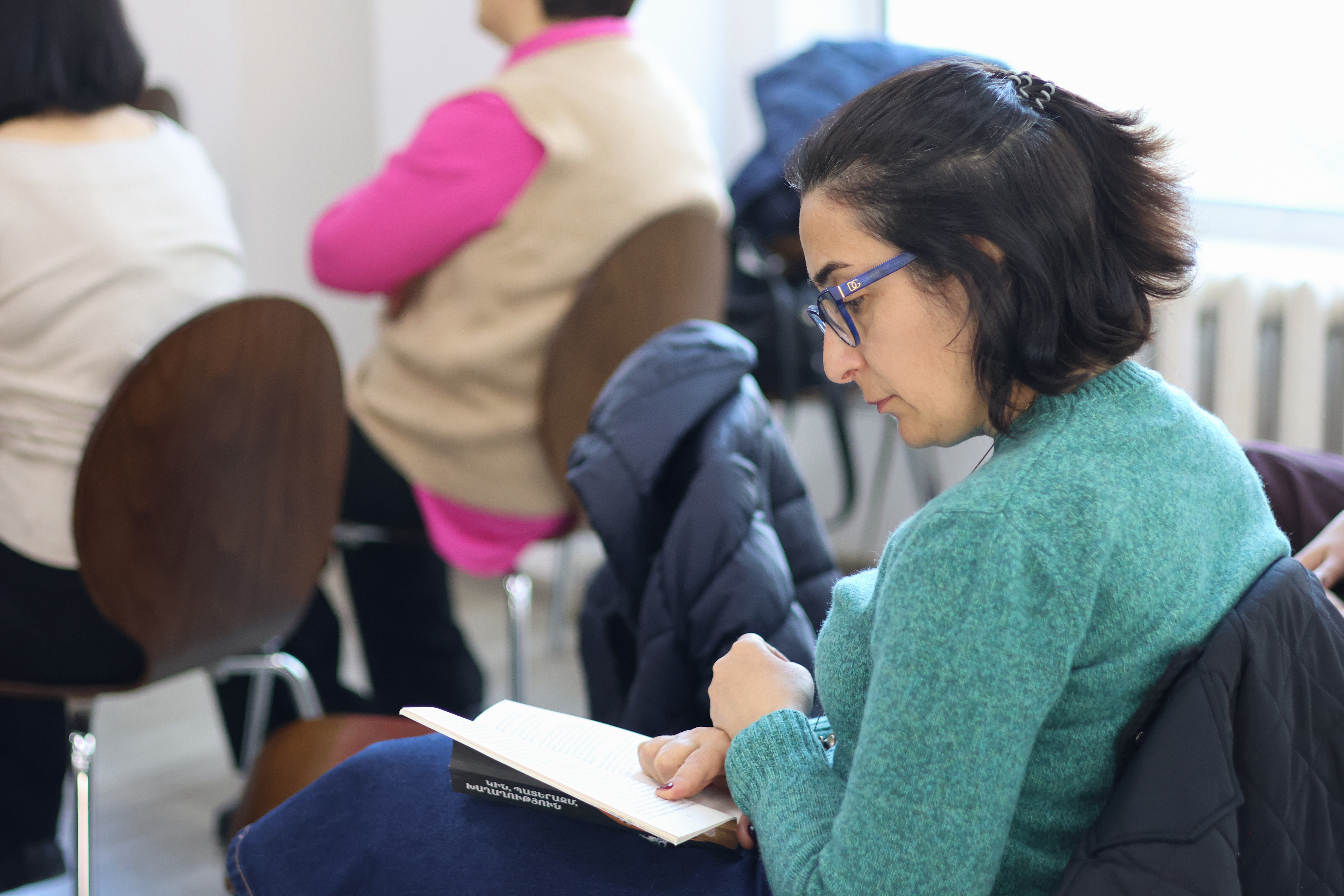October 30, 2025 | 16:30
Society
Publications and scientific journals
International cooperation
'Everyone bears responsibility to reject war': Presentation of "Women, Peace, and War" held
At YSU Sarkis and Marie Izmirlian Library, a presentation and discussion took place for the book "Women, Peace, and War: The Construct and Its De/construction in the Armenian Literature". This collection of analytical essays and articles explores the conflicts and movements that reveal the impact of war on the lives of girls and women, where women, both during and after war, become leaders and victims, front-line fighters and heroes, survivors and advocates of peace. They are portrayed as mothers, sisters, daughters, and ordinary women.
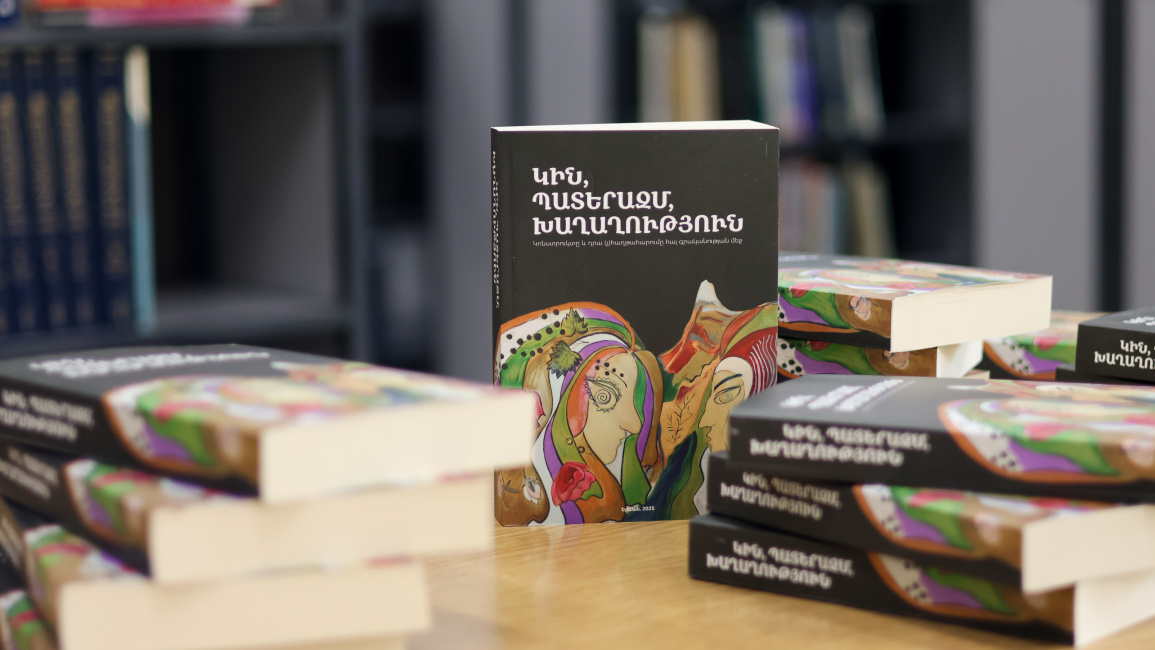
The research presented in "Women, Peace, and War: The Construct and Its De/construction in the Armenian Literature" focuses on works that depict women, peace, and war.
Among the authors present at the event were Mher Arshakyan, Armine Danielyan, and Alla Kharatyan, each of whom outlined the main direction and conclusions of their respective studies included in the book.
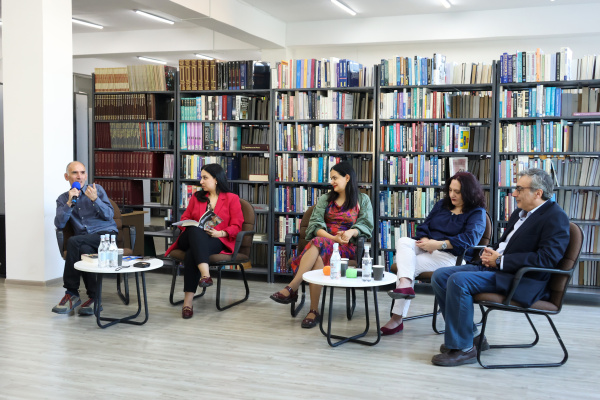
Speaking about Lusine Kharatyan's works "Syrian Affair" and "The Dead End of the Forget-Me-Not", Mher Arshakyan noted, "'Syrian Affair' has a very engaging and seductive language; it is a journey through Syria. The book presents women of all kinds—with their distinct personalities and behaviors—one could even call it an 'encyclopedia of womanhood'. The theme of women and war is mainly reflected in 'The Dead End of the Forget-Me-Not'. It contains no direct descriptions of war, only subtle references to the Georgian-Russian conflict, yet while reading, one perceives how conflictual traits develop in a person."
Armine Danielyan, who studied Armenian folk tales, said, "My research focused on Armenian folk tales recorded by folklorists over a century ago. I examined the contexts in which women take up arms. Even in the fairy-tale, supernatural world, the cruelty toward women on the battlefield is disheartening. I tried to explore what kind of resolution a woman must propose in order to be forgiven for taking up arms to defend her homeland."
According to her, for over a hundred years, women have been forced to take up arms, yet at the end of war, they are not regarded as heroes like men are.
"In society, a woman's traditional functions are to be a mother, to serve her community, to be a good wife—and this conventional image persists in folklore as well. Women are appreciated only for fulfilling these roles," she emphasized.
Alla Kharatyan chose to analyze the works of Daniel Varuzhan, Hrant Matevosyan, and contemporary Artsakh writer Slavik Harutyunyan.
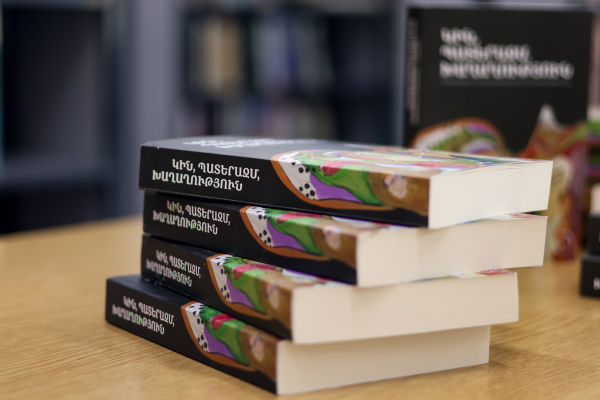
"I tried to understand how the image of the woman is expressed in literature describing the most critical moments—such as the Armenian Genocide and the events leading up to it, the Second World War, and the wars of our own time," she explained, stressing that everyone bears a responsibility to reject war, to recognize its destructive impact, and to convey that awareness.
"Women, Peace, and War: The Construct and Its De/construction in the Armenian Literature" presents the multifaceted interrelations among womanhood, peace, and war, as well as the delicate dynamics between women and men, mothers and sons, within the contexts of both peace and war—and how these themes are reflected in Armenian literature.
This book presentation-discussion was the second event in a series organized jointly by YSU Library and the Eurasia Partnership Foundation (EPF).

